
The Plot
Wall to Wall is a South Korean thriller that premiered on Netflix on July 18.
Directed by Kim Tae-joon and starring Kang Ha-neul, Yeom Hye-ran, and Seo Hyun-woo, the film tells the story of Noh Woo-sung, a man in his 30s who has saved his entire life savings to buy an apartment in Seoul.

After pivotal moments, such as an early divorce presented in quick scenes during the opening credits, we meet Noh Woo-sung in the present as one of the so-called "home-poor": someone practically broke but who owns property in their name.
His entire salary goes toward food and paying off the apartment’s installments as he patiently waits for the promised appreciation in value due to the future construction of a train line in the neighborhood.
But something begins to fall apart.
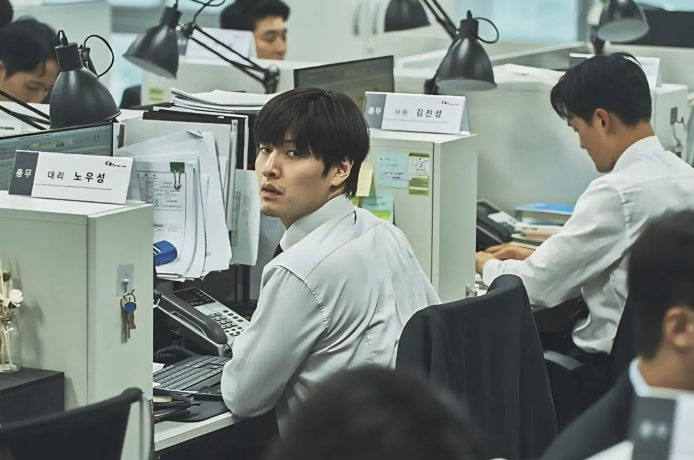
Woo-sung starts being haunted by persistent noises coming from neighboring apartments. And that’s when his paranoia kicks in. Who is making these sounds? How can he make them stop? And the biggest question of all: how can he hold on to his sanity when the home, his long-dreamed sanctuary, becomes the very trigger for his breakdown?
A Real Noise Problem
For many of us, being annoyed by noisy neighbors may seem like a small, perhaps irritating, but not overly serious issue. However, in South Korea, this has become a major and escalating problem that affects much of the population.
About 75% of South Koreans live in residential buildings constructed with concrete walls averaging just 30 cm in thickness, whether lateral, overhead, or underneath. This structure makes every regular sounds, like footsteps, furniture dragging, and conversations, highly noticeable and incredibly bothersome, causing stress, disputes, and, in severe cases, emotional meltdowns.
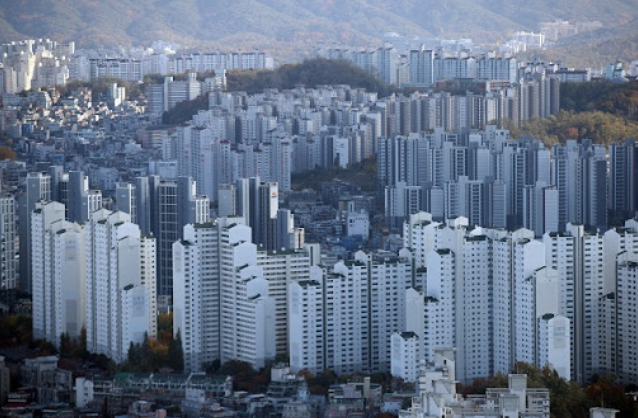
The problem reached such extremes that in 2023, the Seoul Central District Court ruled in favor of a group of residents suing the construction company responsible for a building with poor soundproofing. The company was ordered to cover 70% of the costs for installing soundproof flooring, which led to billions of wons (around $2.9 million USD) in losses.
Faced with the rapid rise of complaints, the South Korean government decided to intervene. In November 2023, the Ministry of Land, Infrastructure, and Transport announced that new residential buildings would only be authorized if they passed soundproofing tests. If not, the construction companies would have to make improvements until these minimum standards were achieved.

However, government action has its limits. Proof of this is that the annual number of complaints registered by the Neighbor Relations Center, a government agency established to mediate conflicts, has quadrupled in just over a decade, growing from 8,795 cases in 2012 to 36,435 in 2023.
Despite this increase, the center’s support remains limited. It has no real authority to intervene directly in disputes, acting mostly as a reporting channel and less like an effective solution. With each passing year, the situation only worsens.
In a scenario where the noise persists, neighbors refuse to communicate, and authorities fail to act decisively... it compels the question: how long can someone hold on before completely losing their grip?
Why Keep Trying?
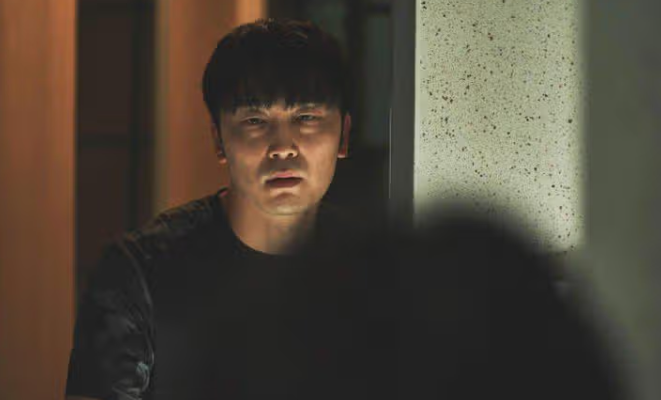
Life is far from pleasant for Noh Woo-Sung. At his dull office job, his manager mocks him, calling him “home-poor,” while a coworker casually asks why he doesn’t just sell the apartment, which to everyone else feels more like a crushing long-term debt than an asset.
But Woo-sung has a plan. He refuses to give up the only major investment of his life without some kind of return. Even if it means working two jobs, pushing himself to the brink of exhaustion, he is determined to pay off his mortgage and hold out until the property increases in value... if and when the promised train line is built.
And then, when it seemed things couldn’t possibly get worse... they do.
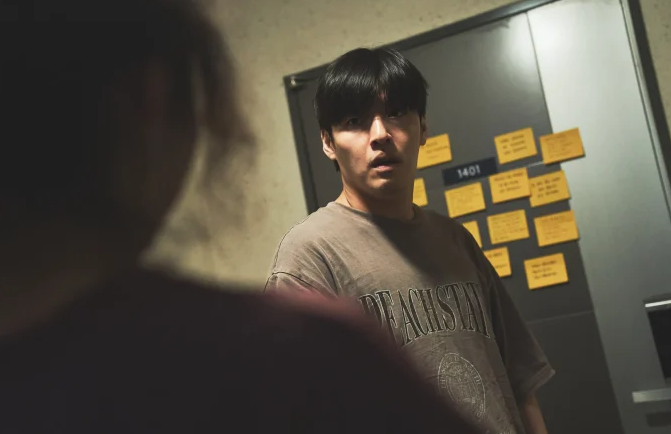
His downstairs neighbor starts leaving notes on his door. Initially, these are polite requests, but they soon turn into hostile demands for him to stop making noises that are allegedly disrupting her daughters’ studies. Woo-sung tries to explain that the sounds are coming from upstairs, but whenever he attempts to prove it, the noise stops, almost as if to mock him. The neighbor does not believe him and begins issuing threats.
Tension starts creeping into every inch of the 84m² space that Woo-sung had once hoped would be his refuge.
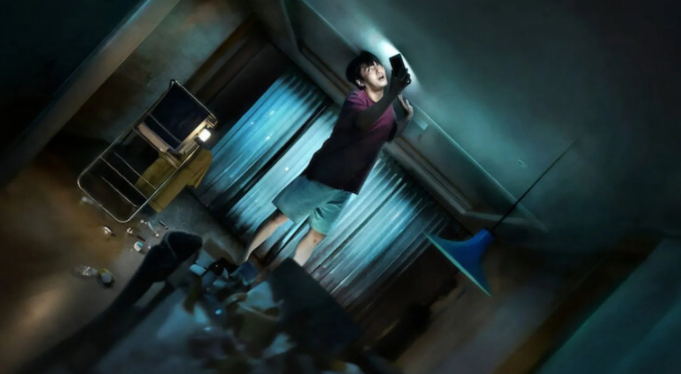
In a desperate quest for answers, Woo-sung decides to confront his neighbors, going from floor to floor. But everyone blames the noise on the apartments above. Every time, it is always "the flat upstairs." He climbs all the way to the penthouse, only to find no clear answers about who is behind his torment—or perhaps everyone else's.
At this point, the question begs: is the apartment worth all of this? Yet, the story has an even deeper reflection in store.
Buying and Selling
Reaching his breaking point, Woo-sung heeds the advice of a coworker and dives into cryptocurrency investments. Armed with a tip hinting at an imminent market dip followed by a significant rise, this seems like his golden opportunity to escape his financial pit.
This is where the film traps us in his spiraling anxiety.
Woo-sung needs absolute focus and must execute every detail of his plan with surgical precision. But how can he focus when the relentless noise continues? When his mind is crumbling under exhaustion and stress?
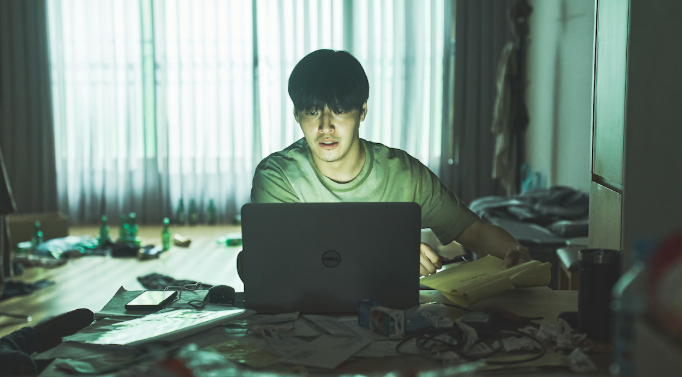
The scenes during this part of the movie are gripping. With frantic cuts and stifled breathing, we watch the tension build: the invasive noise, the sweat beading on his face, his shaking hand over the mouse, the numbers on the screen flashing like a countdown to disaster. The paranoia fills every corner of his apartment.
Amazingly, all of this centers on what is, at its heart, a story about living spaces.
But nothing, absolutely nothing, rivals the peak moment of the film: the all-or-nothing decision.
Woo-sung finds himself boxed in. Quite literally.
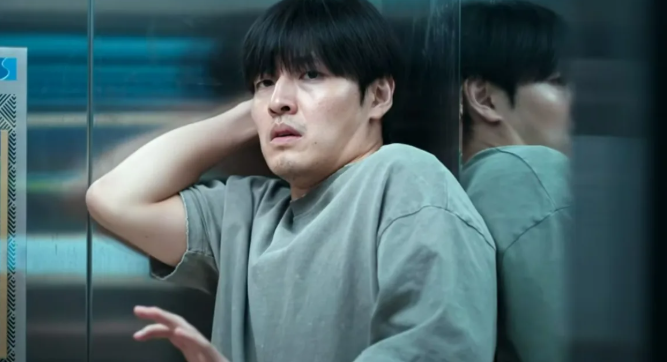
His neighbors escalate the situation to the point where he is left without a computer or phone. With no way to access his trades, time begins to run out. Minutes turn into seconds. The window to seize the crypto opportunity closes, along with Woo-sung’s last glimmer of hope to save his apartment.
The sequence is suffocatingly intense.
You cannot help but root for Woo-sung, clench your fists, and whisper “go, go, go” along with him. All it takes is reaching that mouse button.
Just that.

Behind the Curtains
Though some of the plot twists might not be entirely shocking, they manage to deliver effectively. The truth behind the noises may not break new ground, but it fits well into the expectations of such narratives. The true brilliance of Wall to Wall lies not in its ending but in the way the story is told.
Its strength comes from its execution, not its resolution.
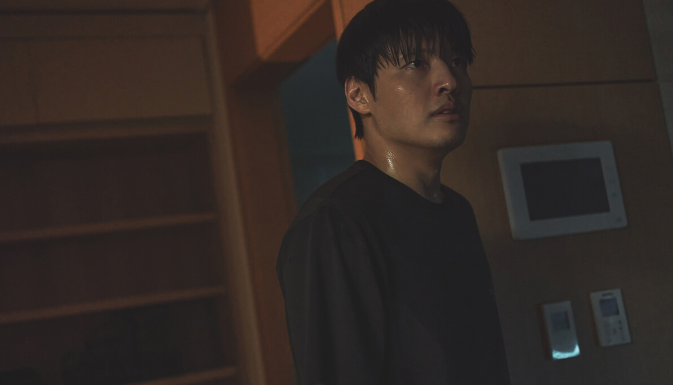
The way Woo-sung slowly realizes who he can or cannot trust, the way he becomes the center of escalating chaos, and his near self-sacrificial attempts to hold corporations accountable all weave together a disturbing portrait.
The film immerses viewers into Woo-sung’s increasingly claustrophobic life, his compounding paranoia, and, perhaps most intriguingly, his quiet greed. His unwillingness to let go of an investment, even if it costs him his sanity, is one of the film’s most profound elements.
Worth the Popcorn?
If you're looking for a thriller that piques your curiosity and keeps you guessing about the mysteries of a single building and its residents, then Wall to Wall is more than worth your time.
Though it might not boast the most original plot or clever twists, it delivers compelling tension and leaves you with meaningful questions.
Would you give up your home because of external forces, or would you hold on like Woo-sung no matter what?













— Comentarios 0
, Reacciones 1
Se el primero en comentar